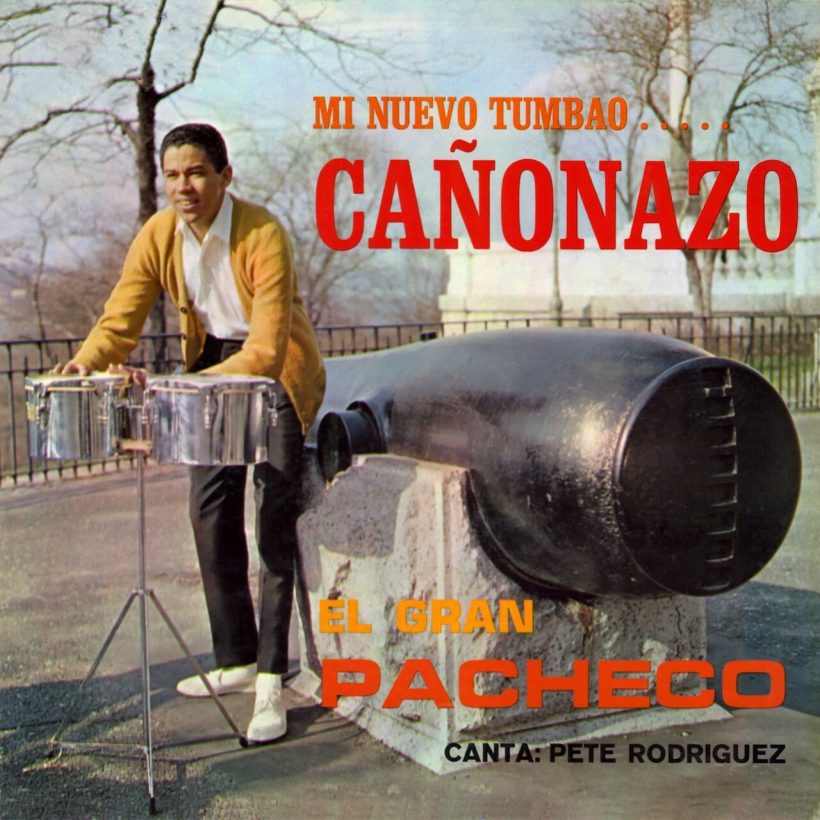Johnny Pacheco’s ‘Cañonazo’ Gets 60th Anniversary Remaster
The album has been remastered for its 60th anniversary and will be released on 180-gram vinyl.

Salsa legend Johnny Pacheco has an extensive discography, but his 1964 album Cañonazo, the first release from the newly-formed Fania Records, was the one that changed everything. To celebrate the album’s 60th anniversary, Cañonazo has been remastered from the original analog master tapes by Kevin Gray at Cohearent Audio and pressed on 180-gram vinyl. The remastered album will release on September 13th.
When Cañonazo was first released, Pacheco had just reorganized his Pacheco y su Charanga band, changing it into a conjunto with trumpets instead of violins, and renaming it Pacheco y su Nuevo Tumbao. Cañonazo was the first album with Pacheco y su Nuevo Tumbao, featuring Pete “El Conde” Rodriguez on vocals. The album consists of covers of popular Cuban songs from the 50s and 60s, with the exception of the last track, an original song by Pacheco. The album also features the track “Fania,” a cover of the song “Fanía (Funché)” by Reinaldo Bolaños and recorded by Estrellas de Chocolate in 1953, which inspired Pacheco to name the label Fania.
Celebrating the 60th anniversary of the label, Craft Latino and Fania have announced a series of releases and events. Craft Latino will release over a dozen remastered 180-gram vinyl reissues and over two dozen remastered digital albums, many of which will debut in hi-res digital. Additional offerings include a singles box set and a variety of content throughout the year, including curated playlists, artist spotlights, and live events across New York, Los Angeles, Miami, and London.
The singles box set, Fania 45s: the Latin Sound of New York, will release this fall. This long-awaited set will feature some of the most celebrated singles by some of Fania’s most-loved artists, including Johnny Pacheco, Celia Cruz, Joe Bataan, Willie Colón, Héctor Lavoe, Ray Barretto, Ismael Rivera, Pete Rodriguez and Eddie Palmieri. It will include archival images, ephemera and in-depth liner notes in English and Spanish by New York–based music historian, author and producer Aurora Flores.












